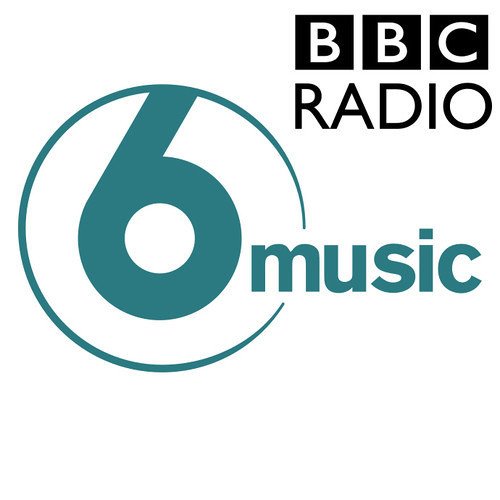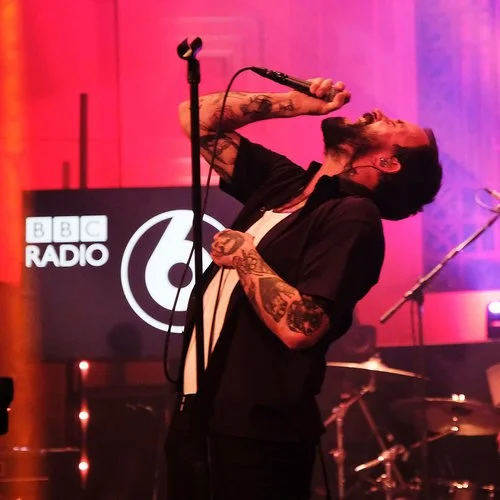FEATURE:
A Radio Revolution
IN THIS PHOTO: Lauren Laverne and Mary Anne Hobbs/PHOTO CREDITS: BBC
Celebrating BBC Radio 6 Music at Twenty
___________
ON 11th March, 2002…
IN THIS PHOTO: Gilles Peterson
BBC Radio 6 Music arrived in the world. In 2002, I don’t think many of us were too aware of digital radio and what it could achieve. My experience with radio to that point was with FM stations. I was conscious of the Internet and its powers, though digital radio was a new thing. It must have been nervous and exciting for listeners tuning in on 11th March, 2002. Phill Jupitus was responsible for welcoming in this new and brave dawn. I did not turn into that first show, though it was a thrilling and brilliant new era. Although the station was threatened with closure, it was saved from an ill-judged end. And, in spite of the fact BBC Radio 6 Music has received criticism, I think that BBC Radio 6 Music – who you can follow on Twitter – has broadened through the years. As an alternative station, its mandate was to be different to the mainstream and more popular BBC stations. At the time of this feature going live, I am not sure whether there are any plans for the big anniversary. I am sure that there will be a dedicated day or events that herald an important occasion. Few who started at the station in 2002 (including early-morning host Chris Hawkins) could have envisaged that it would still be here twenty years later! It is a combination of great broadcasters, a broad aesthetic and loyal listenership that has ensured BBC Radio 6 Music has not only survived, but it has grown and continues to become more of a force.
Many of the broadcasters who joined the station in the first few years are still there today. The likes of Lauren Laverne, Chris Hawkins and Marc Riley are cornerstones! One of the criticisms levied at BBC Radio 6 Music in previous years was the sound and target audience. Maybe they were quite guitar-based in terms of music in the earliest days. Perhaps trying to present an edgier and hipper brand of radio, a certain all-inclusiveness was omitted. Listen to the station now, and they take from all corners of the music spectrum. The broadcasters are diverse too. From established names like Chris Hawkins to relative newcomers like Deb Grant and AFRODEUTSCHE, we have voices, tastes and faces from a wide spectrum. BBC Radio 6 Music, to me, is the most diverse and all-encompassing station we have. The new head of the station, Samantha Moy, has brought in changes in terms of the presenters and timeslots. There have not been too many radical changes to the way BBC Radio 6 Music operates and what it says. Remaining fresh and must-listen, each broadcaster has their own style and appeal. From fascinating features to the most eclectic music, BBC Radio 6 Music has defied criticism and predicted shelf life. As the BBC celebrates its centenary later this year, it should be proud of a station that offers comfort and inspiration to so many. During the pandemic, it has not only been the blend of hot new music and wide-ranging older tracks that have kept people coming back. Each broadcaster, in their own way and from their individual studios, have offered guidance and warmth to the listeners.
IN THIS PHOTO: IDLES in session for BBC Radio 6 Music in 2020
I think one of the most important moments in their twenty-year history is the way BBC Radio 6 Music has helped and embraced its listeners. When so many people were unbale to see others and live life in a normal way, BBC Radio 6 Music were there and offering strength, reassurance and strength. The station is often called, by its presenters, a family. It seems that way. A community of listeners that can find common ground and connection, this familial blanket is another major reason why listener figures continue to increase. I look forward to learning what BBC Radio 6 Music plans for its twentieth anniversary. Going forward, I expect that the station will increase its listenership and bring in some new names. The broadcasters there are dedicated and passionate about what they do – so one might not see too many of them depart anytime soon. I think there will be new shows and presenters coming to the station. Always remaining relevant and open to change, 2022 offers a chance for real impact. The station holds a festival each year but, due to the pandemic, it has not been in its normal format. That will, surely, return to its usual state this year. The station is likely to broadcast from Glastonbury in June, and there is likely to be positive news regarding increased listeners and new records. All of this is exciting for a digital station that launched humbly (yet optimistically) on 11th March, 2002. BBC Radio 6 Music has survived potential closure to find itself beloved and heard by millions each day. It is clear that this vital part of the radio landscape is…
IN THIS PHOTO: Matt Everitt with Elton John
NOT going anywhere.





